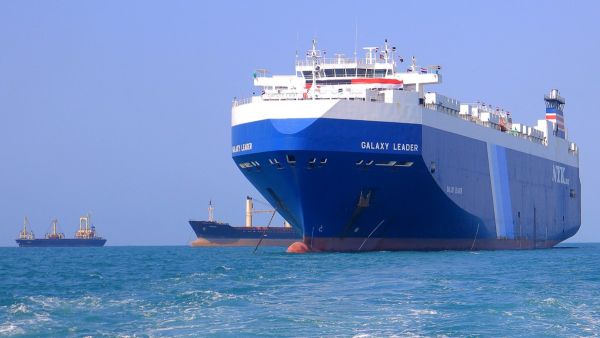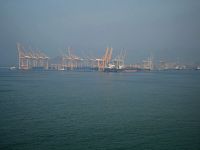Did the recent hijackings by Houthi rebels disrupt the Red Sea shipping route?
ALBAWABA – The Houthi attack on the US Navy warship in the Gulf of Aden on Monday, which was responding to a distress call from a commercial tanker along the global Red Sea shipping route, brings to focus the series of seizures carried out by the rebel group against Israeli vessels in the region.
The Iran-backed Houthi rebel group began targeting Israeli and Israel-affiliated ships going through the Gulf of Aden in response to the Israeli genocide in Gaza.
At least two ships were attacked and seized by the group, raising the question as to whether shipping through the Middle East region is still safe.
One of the ships, the Galaxy Leader, seized last week, was beneficially owned by a unit of f Israeli businessman Rami Ungar’s Ray Shipping Group, Bloomberg confirmed.
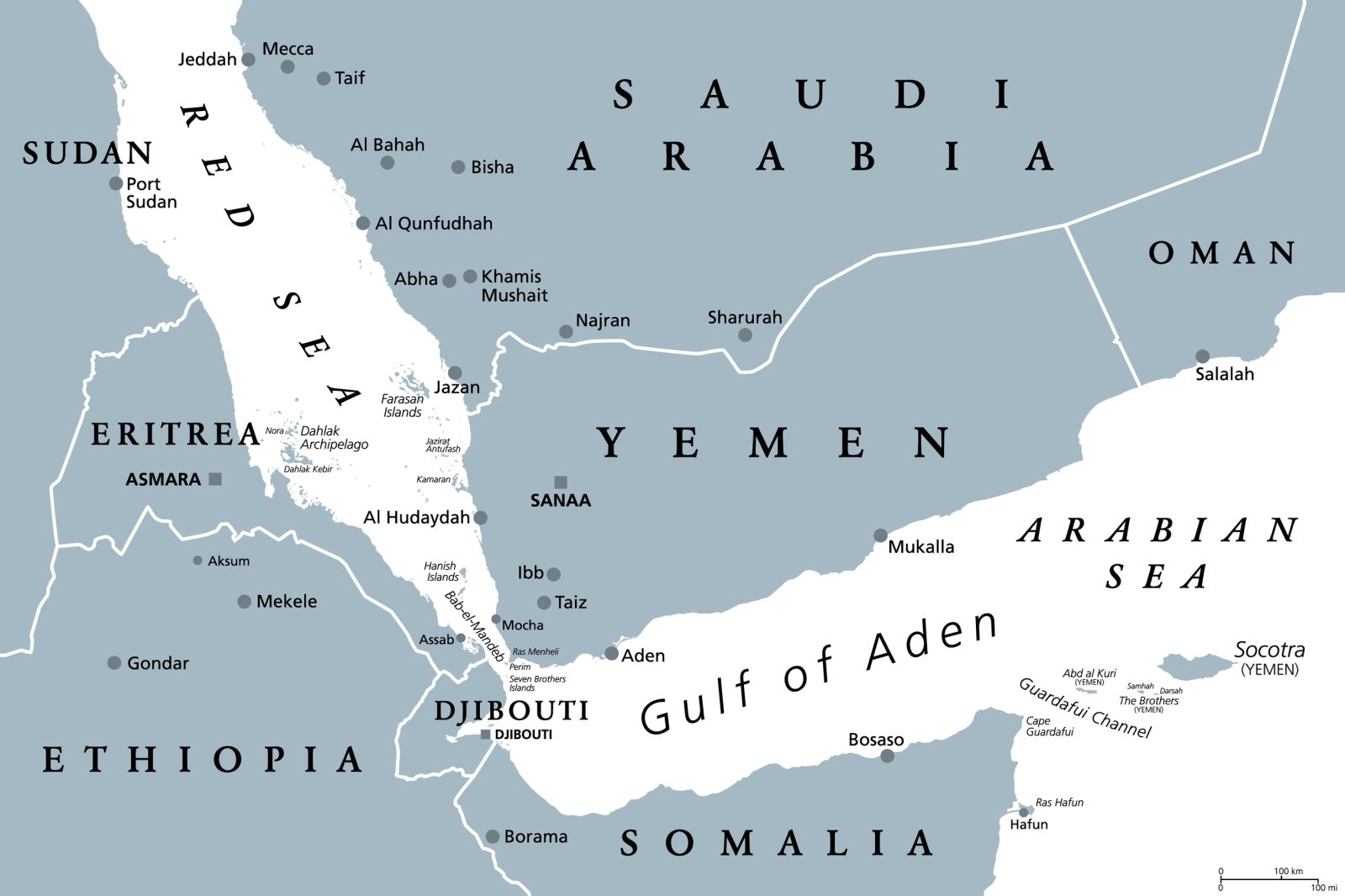
The Red Sea shipping route goes through the Gulf of Aden and the Suez Canal - Shutterstock
According to Bloomberg Intelligence analyst Kenneth Loh, while the Middle East situation, with the Gaza genocide unfolding may have been under control, thus far, these seizures represent a “significant escalation of tensions”.
“Some shipping companies may decide to circumvent the region for safety reasons, which means additional costs and delays,” he said.
“This could lead to a knock-on effect across global supply chains reminiscent of pandemic-era congestion and supply-chain chaos.”
In the months before Hamas launched their October 7 attack, the number of hijackings had been increasing in the region, due to rising US-Iranian tensions and restrictions on the trade of Iranian oil.
"This is part of a tit-for-tat war between the US, UK and Iran, and could draw other countries in,” Dimitris Maniatis, COO of private maritime security company Seagull Maritime, told Deutch Welle (DW).
“Iran's Revolutionary Guard Corps Navy want to influence the geopolitical scene and show they control the Straits of Hormuz," Maniatis underlined.
Iranian naval forces seized three internationally flagged oil tankers, in April and May, in response to US seizures of tankers allegedly carrying Iranian oil as part of sanctions enforcement operations.
Are the Houthi rebels a threat to global trade through the Red Sea shipping route?Three days ago, on November 26, the US Navy reportedly captured five hijackers who had attempted to hijack a tanker run by an Israeli businessman, in the Gulf of Aden near Somalia, called the ‘Central Park’.
Notably, Houthis control much of the western Yemen coast and overlook a large stretch of the Red Sea and the narrow Bab el-Mandeb Strait, some of the world's busiest waterways.
Yet, they were not actively engaging in hijacking ships until the Israeli genocide in Gaza began.
Even though the rebel group acts as a proxy of the Iranian regime, according to DW, it is not likely they will engage in criminally-motivated behaviour.
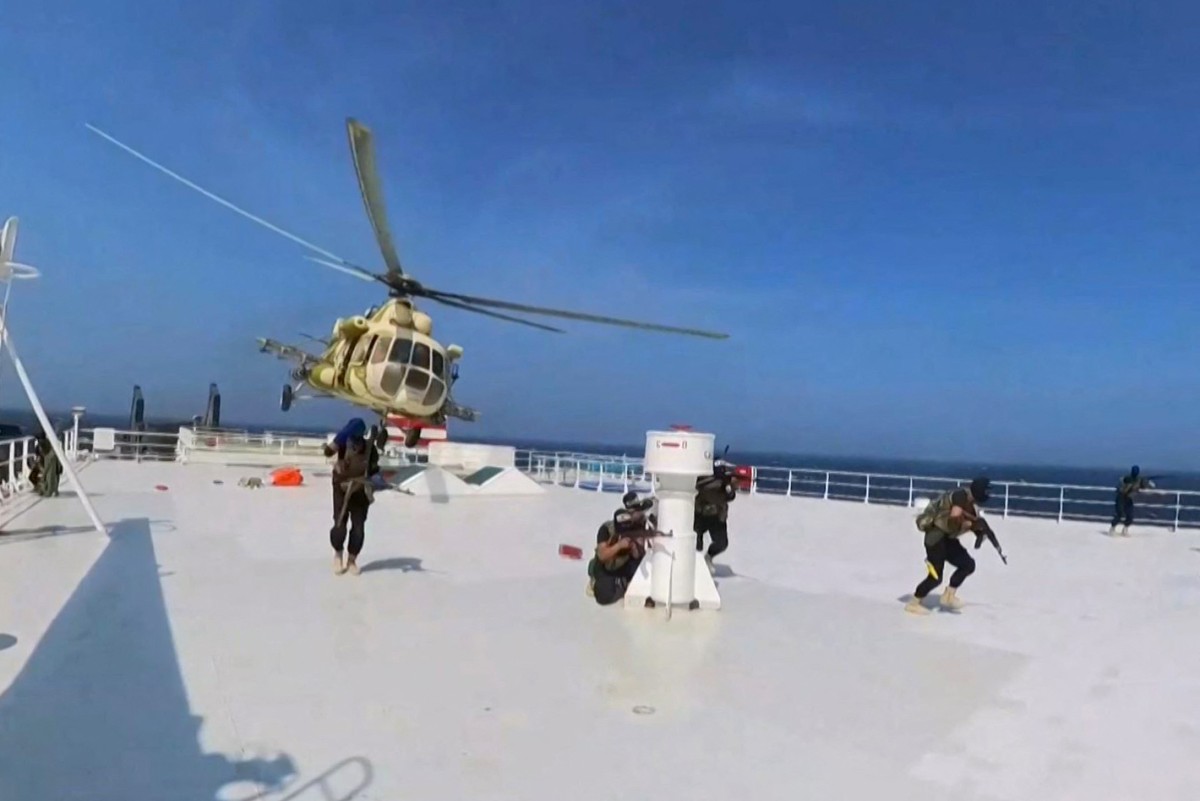
A grab from handout footage released by Yemen's Huthi Ansarullah Media Centre on November 19, 2023, reportedly shows members of the rebel group during the capture of an Israel-linked cargo vessel along the Red Sea shipping route. (Photo by ANSARULLAH MEDIA CENTRE / AFP)
In fact, these recent hijackings were political, rather than piracy.
"The seizure of the Galaxy Leader was politically motivated. As such the threat to merchant shipping as a whole is low, and this is likely to remain the case due to the very specific nature of the targeting of these vessels," John Stawpert of the International Chamber of Shipping told DW.
Most of the hijacking in and around the Red Sea is carried out by pirates, mainly from east and north-eastern Africa. Ships sail through a narrow point between Yemen and Djibouti on their way to the Suez Canal through the Red Sea.
Pirates have been active there for years, but not the Houthis.
According to Harish Natarajan, head of economic analysis at AKE International, a security risk consultancy in London, the risk of attacks by Houthis is likely to mirror developments in Gaza.
Houthi attacks along the Red Sea shipping route to likely target Israeli ships
Escalating the Israeli onslaught on Gaza would likely prompt an increase in the risk of attacks targeting Israeli ships and perhaps extending to US and Western assets allied to Israel, he explained to DW.
So far, insurers have not changed their practices, says Stawpert.
"Similarly, the specific nature of the incident means that the overall threat to shipping is low, and it is therefore very unlikely to result in significant rerouting of vessels from the Red Sea," he added.
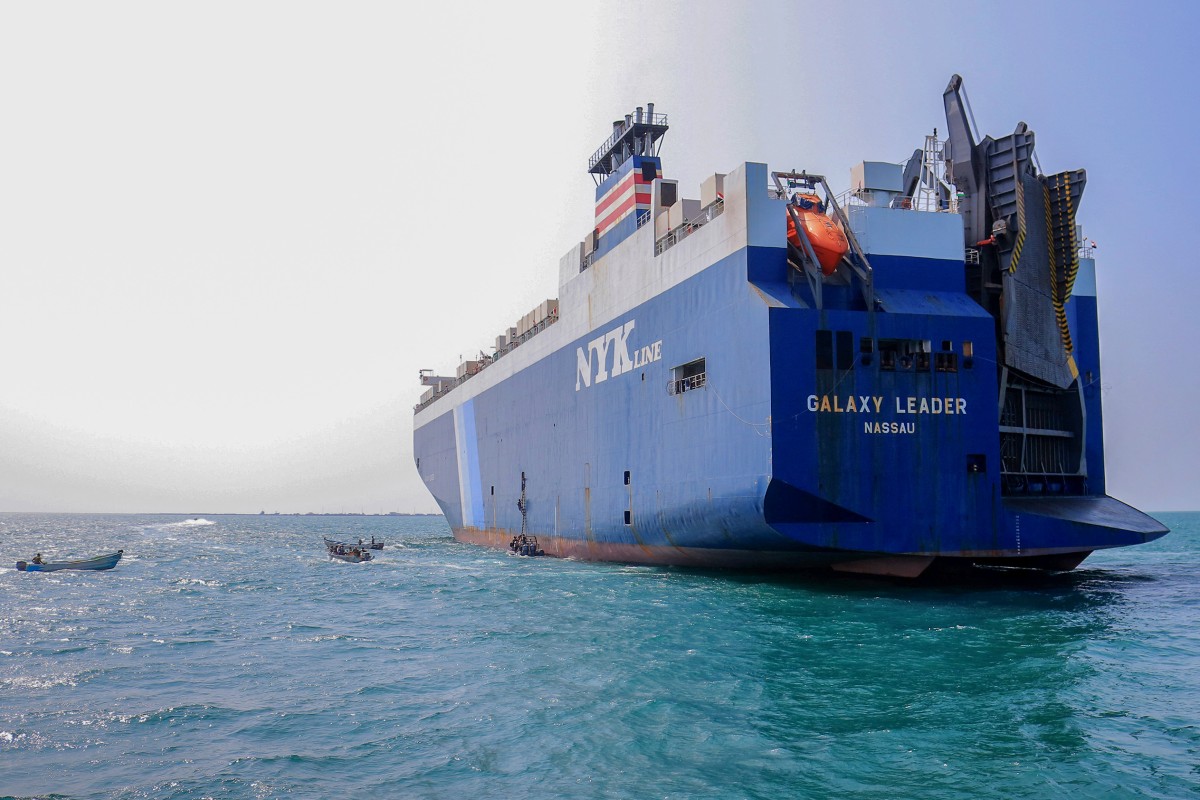
The Galaxy Leader cargo ship was hijacked by Houthi rebels while sailing through the Red Sea shipping route. The picture taken during an organised tour by Yemen's Huthi rebels on November 22, 2023 shows the Galaxy Leader cargo ship (R), seized by Huthi fighters two days earlier, approaching the port in the Red Sea off Yemen's province of Hodeida. (Photo by AFP)
"The extreme case is that of the Black Sea. Following Russia's invasion of Ukraine, the cost of insuring a vessel and its cargo rose up to 10 percent of its total value," Natarajan says.
"We don't expect any contraction of sea trade, just security, and thus costs, being increased," Maniatis believes. "Most vessels, after all, have no Israeli connection."
The Houthis have been fighting a civil war in Yemen since 2014. A Saudi-led coalition intervened the following year on the side of the United Nations-recognized government and against the rebels. The conflict has calmed since a truce was agreed around 18 months ago. But the Israeli onslaught on Gaza has reignited tensions, with the Houthis saying they would back Hamas with attacks on Israeli territory and ships.


